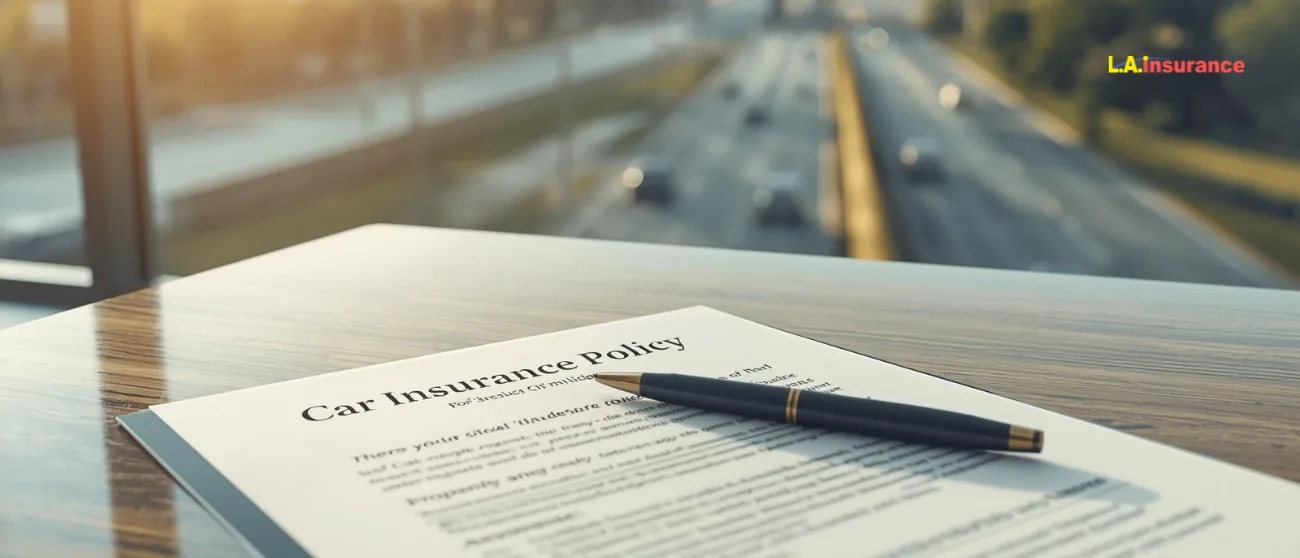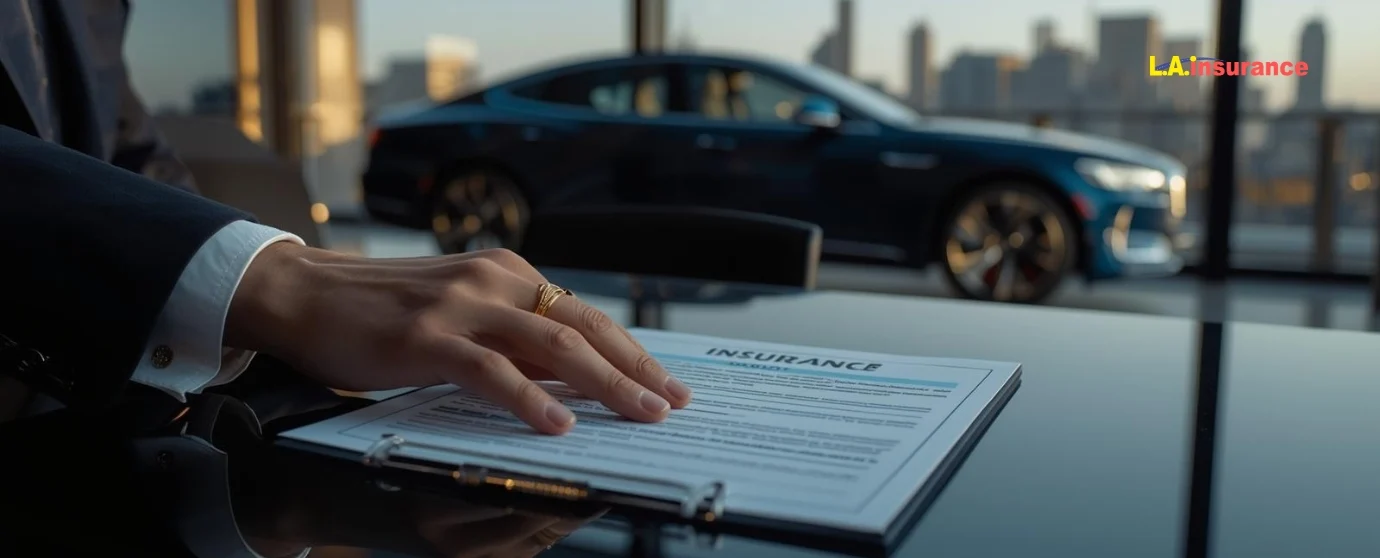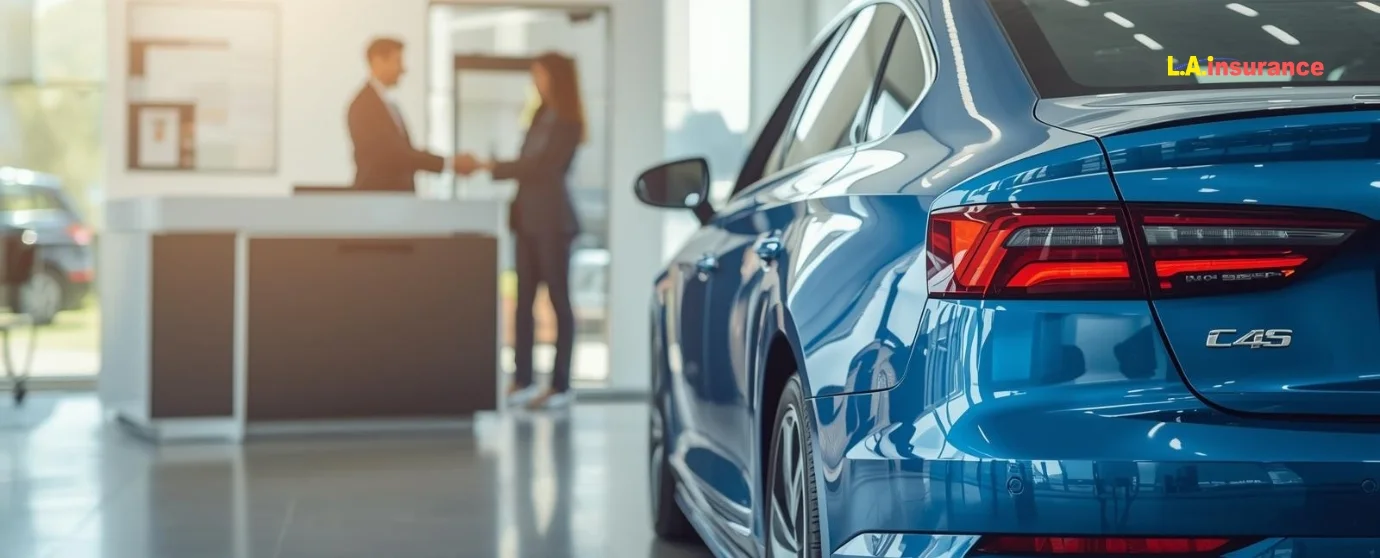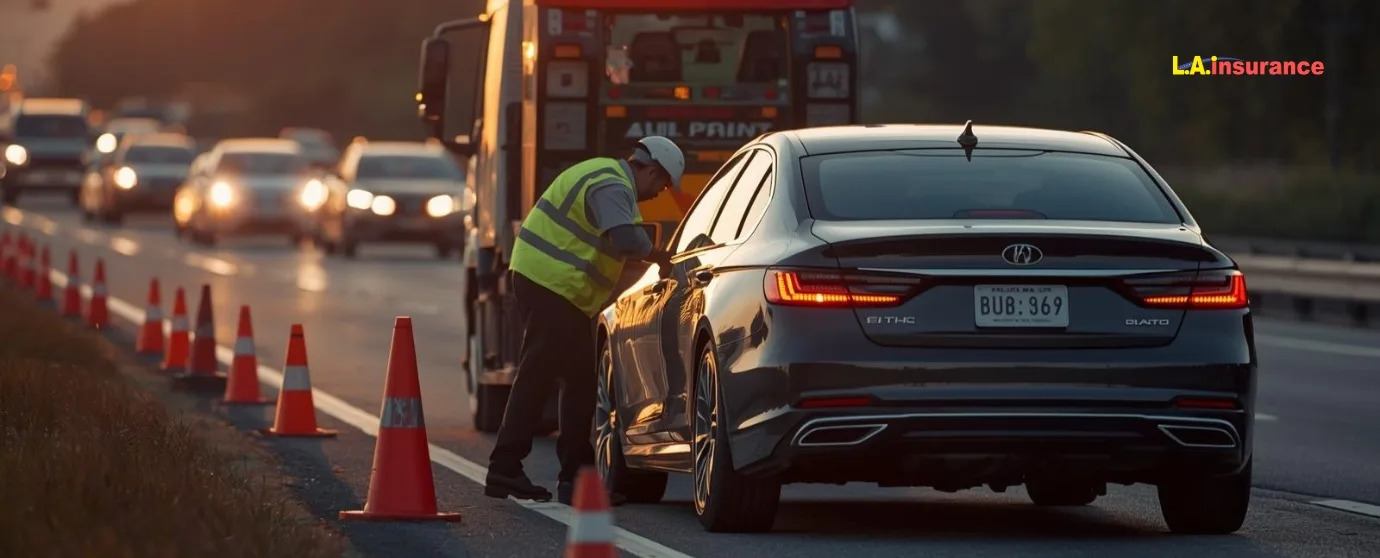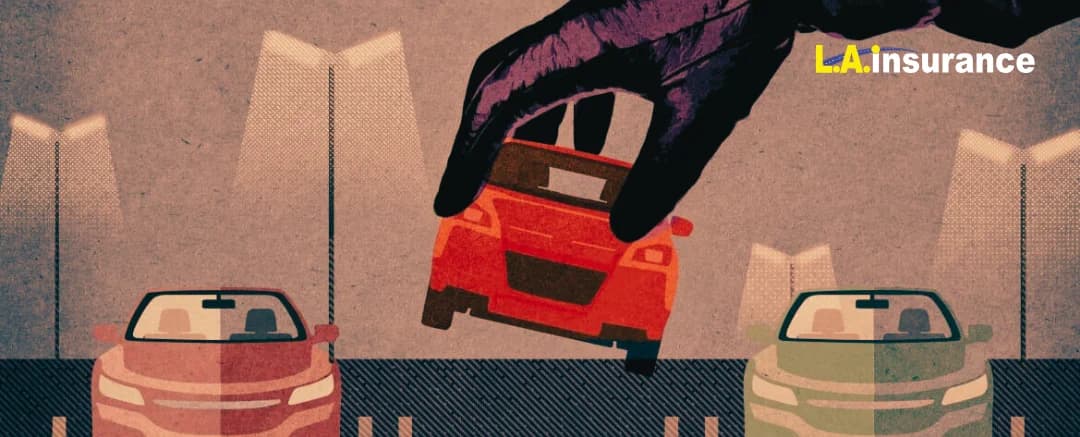
Publish Date: 05-05-2025
Auto Insurance
Last Updated: 29-01-2026
Does Liability Insurance Cover Theft?
Liability insurance is a cornerstone of car insurance. It offers protection against third-party damages and injuries after accidents. But does liability insurance cover theft? Unfortunately, it doesn’t. Liability insurance only covers damages you cause to others, not your own vehicle. This means If your car is stolen or vandalized, liability coverage won’t help. Instead, comprehensive car insurance steps in to cover theft, break-ins, and related damages.
This article will discuss all the relevant coverage options in detail like what liability car insurance is, what car insurance covers stolen cars, how you can get the protection you need in case of car theft, what to do if someone steals your car, and much more!
What Is Auto Liability Insurance and What Does It Cover?
There are different types of car insurance, but all of them are either optional or add-ons except liability insurance. Auto liability insurance is mandatory in most states for drivers. Its primary purpose is to protect you financially if you cause an accident that results in bodily injury or property damage to others. It doesn’t, however, cover theft or any sort of damage to your own car. Instead, it focuses solely on third-party claims.
Auto liability insurance is divided into two key areas:
- Bodily Injury Liability: Covers medical bills, lost wages, and other costs incurred by the injured party in an accident you caused.
- Property Damage Liability: Pays for repair or replacement costs for damages you cause to someone else’s property, such as vehicles, fences, or buildings.
What Liability Insurance Typically Covers:
- Medical Expenses
- Legal defense costs
- Property repair or replacement costs (e.g., damaged cars, mailboxes, or homes)
- Lost income compensation for injured parties unable to work
- Funeral expenses, if accidents result in loss of death
On the flip side, it’s important to remember that auto liability insurance doesn’t cover the following:
- Theft or vandalism of your vehicle.
- Personal items stolen from your car.
- Repairs to your car after an accident.
- Medical costs for your own injuries.
As we finish our discussion on liability insurance coverage, we now have an important question that everyone wants answers to.
Does Liability Insurance Cover a Stolen Car?
Does liability cover theft? The answer is a clear no. Liability insurance doesn’t cover theft. Your liability coverage only protects against bodily injury and property claims made by others if you’re responsible for an accident.
While liability car insurance is important for meeting the legal requirements of your state and protecting yourself from third-party claims, it provides no protection for your own vehicles in cases of theft, vandalism, or break-ins.
For example, if your car is stolen, liability insurance will not reimburse you for its cash value (ACV) or repairs needed after theft-related damages. Also, it won’t cover stolen personal items like laptops or wallets left in the car.
However, it is important to protect your car from theft with an auto insurance policy. According to the National Insurance Crime Bureau (NICB), 1 million cars were stolen in 2023, a 1 percent increase from the previous year.
Luckily, this figure has significantly dropped by 17% in 2024. Still, 850,708 vehicles were stolen nationwide, as per the recent NICB report. This shows why you need the right insurance to cover theft, especially if you live in areas that are more likely to experience it.
States That Are Most Prone to Theft
If you live in a state where car theft happens often, like California, Texas, or Florida, you need to make sure you have the right kind of insurance that covers theft as well as install the anti-theft devices that can safeguard your vehicle.
In terms of theft rate, here are the top 5 states:
State | Theft Per 100,000 People (2024) |
District of Columbia | 842.40 |
California | 463.21 |
New Mexico | 458.24 |
Colorado | 430.04 |
Nevada | 394.42 |
Source: National Insurance Crime Bureau (NICB) | As of 2024 Data.
What Type of auto Insurance Covers Theft?
Certain types of auto insurance cover theft and theft-related damages. These include:
- Comprehensive Coverage: Comprehensive coverage can help you if your car is stolen. It covers the vehicle itself in the event of theft and repairs for damages caused by break-ins, such as smashed windows or broken locks. Note that if you have a financed or leased vehicle, your lender might require you to maintain comprehensive coverage as well.
- Custom Parts and Equipment Coverage (CPE): If your car has aftermarket modifications, this insurance covers the cost of replacing stolen or damaged parts, such as custom rims or audio systems.
- Renters Insurance or Homeowners Insurance: While not specifically for cars, these policies protect against theft of personal items stolen from your vehicle, like electronics, sports equipment, laptops, phones, or other valuables.
So, when it comes to protecting your stuff, it’s important to think about an extra layer of insurance coverage that can protect you against theft. You know, the right coverage depends on a few things, like where you usually park your car and how valuable the items you keep inside are. Have you ever had to consider this kind of coverage? If not, simply purchase an affordable full coverage auto insurance policy that includes liability, comprehensive, and collision coverage, and ensure your car is fully secured against all kinds of unexpected incidents. Get same-day car insurance with our most affordable insurance agency.
What Are the Differences Between Liability Insurance and Comprehensive Insurance?
Here are the main differences between comprehensive and liability coverage. The table below outlines what each type of coverage includes and what it protects:
Feature | Liability Coverage | Comprehensive Coverage |
Purpose | Covers damage or injuries caused to others in an accident. | Covers non-collision-related damages to your own vehicle, including theft, vandalism, and natural disasters. |
Coverage | Bodily injury: Medical bills, legal costs, and lost wages for third parties. Property damage: Repairs or replacement of third-party property, such as vehicles or structures. | Vandalism, fire, and natural disasters (e.g., hail, floods). Also, the damage caused by break-ins, like broken windows or locks. |
Personal Vehicle Protection | Does not cover damages to your own vehicle. | Protects your vehicle from specific risks excluding general wear and tear. |
Personal Items Coverage | Does not cover stolen items inside your car. | Does not cover personal items; these may be covered by renters insurance or home insurance. |
Legal Requirements | Required by most states to legally drive. | Optional but often required by lenders for leased or financed vehicles. |
Premium Costs | Usually lower because it provides limited coverage. | Slightly higher and in some states lower than the liability coverage but depends on the risk factors. |
Scenarios Covered | Accidents where you are at fault, covering third-party damages and injuries. | Theft, vandalism, and damage from falling objects like trees or debris. |
Exclusions | Doesn’t cover theft, vandalism, or damages to your own car. | Doesn’t cover personal items inside the car or general wear and tear. |
What Should You Do If Your Car Is Stolen?
When your car is stolen, you need to take a few actions right away. For instance, acting quickly can improve the chances of recovery as well as ensure a hassle-free insurance claim process. So, here we are to discuss the crucial steps to take when your car is stolen.
- Confirm the Theft: Double-check your surroundings. Make sure your car wasn’t towed, repossessed, or simply parked elsewhere. This way, you can eliminate any confusion or unnecessary delays.
- File a Police Report: Contact local authorities immediately. Provide them the key details such as license plate numbers, Vehicle Identification Number (VIN), car’s make and model, color, and any unique identifiers, such as bumper stickers or custom parts. Remember, filing a police report is very important for starting an insurance claim.
- Contact Your Insurance Company: Notify your insurer within 24 hours. Share the police report and provide all relevant details. Your insurance company will guide you through filing a theft claim under comprehensive coverage, if applicable.
- Gather Essential Documents: Collect your car’s title, registration, and any loan or lease paperwork. Insurers may also ask for details about your car’s mileage, service history, and where the keys were stored during the theft.
- Inform Your Lender: (If applicable) If your vehicle is leased or financed, report the theft to your lender. They may need to coordinate with your insurance company to settle the claim.
- Monitor Investigation: Work closely with authorities. If your vehicle is recovered, have it inspected for damage. Repairs from theft-related damages can be covered by comprehensive insurance after the deductible.
- Plan for Replacement: If your car isn’t recovered, your comprehensive insurance may compensate you for the actual cash value (ACV) of your vehicle, minus the deductible. You can use this payout to purchase a replacement vehicle.
How Do Insurers Handle Theft Claims?
When your vehicle is stolen, insurers follow a detailed process to evaluate your claim. They assess the circumstances, validate your coverage, and determine the payout. Acting promptly and providing accurate information improves your chances of claim approval.
Factors Affecting Claim Approval
Several factors influence whether your theft claim is approved:
- Types of coverage (e.g. comprehensive auto insurance)
- Documentation (e.g., filing a police report, proof of ownership)
- Circumstances of the theft (claims may be scrutinized if the keys were left in the car or was it unlocked)
- History as a policyholder
Actual Cash Value Vs. Replacement Cost
Insurers base their payouts on the actual cash value (ACV) of your car. This reflects the car’s current market value after accounting for depreciation, mileage, and condition. Unlike replacement cost, which covers the expense of buying a new car. ACV typically results in a lower payout. Reviewing your insurance policy can help you learn how ACV applies to your claim.
Role of Deductible in Theft Claims
Your deductible also plays a vital role when it comes to theft claims.. This is the amount you must pay out of pocket before your insurer compensates you. For example, if your car’s ACV is $10,000 and your deductible is $1,000, your insurer pays $9,000. Choosing a higher deductible can lower premiums, but it increases out-of-pocket costs during a claim.
How Can You Reduce the Risk of Car Theft?
Protecting your car from theft requires a mix of caution and preventive measures. By being proactive, you can reduce your risk significantly.
1. Park Smartly
Always park in well-lit, secure areas. Thieves avoid places where they can be easily seen. Parking near cameras or high-traffic spots can further deter them.
2. Use an Anti-Theft Device
Equip your vehicle with alarms, steering wheel locks, or kill switches. These visible and audible deterrents make stealing your car harder and riskier for thieves.
3. Keep Valuables Hidden
Don’t leave personal items like wallets, electronics, or bags visible. These attract thieves. If possible, take valuables with you or hide them in the trunk.
4. Lock Doors and Close Windows
It might seem obvious, but many thefts happen because doors are unlocked or windows are left open. Always secure your car, even in your driveway.
5. Install a GPS Tracker
A hidden tracker increases the chances of recovering a stolen car. It helps authorities locate your vehicle quickly and improves your insurance company’s ability to settle your claim.
6. Don’t Leave Keys in the Car
Never leave your keys inside, even briefly. Remote starters and spare keys are also targets. Thieves act fast when they find keys available.
7. Engrave Identification Numbers
Marking license plate numbers or Vehicle Identification Numbers (VIN) on windows makes your car less appealing to thieves. It’s harder to sell stolen parts with identification engravings.
By taking these steps, you can not only protect your car but can also lead to discounts from insurers offering rewards for cars equipped with anti-theft systems. Being vigilant reduces your risk and strengthens your peace of mind.
Will Liability Insurance Cover Theft: Key Takeaways
- Liability Insurance won’t cover theft, vandalism, or any damage to your own car.
- It only protects against bodily injury and property damage caused to others in accidents.
- To protect your car from theft or break-ins, you need comprehensive auto insurance, which also covers natural disasters, vandalism, and falling objects.
- Personal items stolen from your car are not covered by auto insurance but may be covered under homeowners or renters insurance.
- Actual cash value (ACV) is used to calculate payouts for stolen vehicles, factoring in depreciation, minus your deductible.
- Preventing theft with measures like anti-theft devices, parking in safe locations, and keeping valuables out of sight can reduce risks and sometimes premiums.
- Comprehend your insurance policy and limits for effective theft protection.
Check Out the Related Articles About Car Insurance That Can Protect You in Different Situations:
- Does Car Insurance Cover Accidents on Private Property?
- Does Insurance Cover Stolen Car If Keys Left?
- Does Car Insurance Cover Car Seats?
- Does Car Insurance Cover Car Battery?
- Does Car Insurance Cover Water Damage?
- Does Car Insurance Cover Hail Damage?
- Does Auto Insurance Cover Drunk Driving Accidents?
Frequently Asked Questions (FAQs)
What Happens If Your Car Gets Stolen And You Have Full Coverage?
If your car is stolen and you have full coverage, your comprehensive insurance will cover the actual cash value (ACV) of the vehicle, minus your deductible. If the car is recovered with damage, repairs are also covered. Personal items inside the car are not included.
Does Car Insurance Cover Theft of Personal Items?
No. Car insurance does not cover stolen personal items like electronics or bags inside the vehicle. These may be covered under homeowners' insurance or renters' insurance. To file a claim, you’ll need a detailed police report and proof of ownership for the stolen belongings.
How Much Will Insurance Pay For A Stolen Car?
The payout for a stolen car depends on its actual cash value (ACV), which accounts for depreciation, mileage, and condition. Your comprehensive insurance covers this amount minus your deductible. Optional gap insurance can cover the difference if you owe more than the car’s ACV.
Does Full Coverage Cover Theft?
Yes, full coverage typically includes comprehensive insurance, which covers theft. It pays the actual cash value (ACV) of the stolen vehicle, minus your deductible. If the car is recovered with damage, repair costs are also covered. However, stolen personal items aren’t included.
Do Police Recover Stolen Cars in the USA?
Yes, in the US, law enforcement recovers a significant percentage of stolen vehicles. Over 85% of stolen vehicles are recovered with 34% within a day, according to the National Insurance Crime Bureau (NICB). Quick reporting increases the likelihood of recovery, and insurance companies often assist in the process once the vehicle is located.
What Should You Do If Your Stolen Car Is Recovered?
If your stolen car is recovered, contact your insurance company immediately. Have it inspected for damages. Comprehensive coverage will cover repairs, minus your deductible. Also, provide the police report and any relevant documents to your insurer for a smooth claims process and to settle your claim.
Are Custom Parts and Modifications Covered in Theft Claims?
Standard auto insurance usually doesn’t cover aftermarket car parts or modifications, like custom rims or stereos, unless you add custom parts and equipment (CPE) coverage. Without this, stolen or damaged modifications may not be reimbursed by your comprehensive insurance. Always check your policy for exclusions.
Does Liability Insurance Cover Theft of a Rental Car?
No, liability insurance does not cover the theft of a rental car. You will need to purchase rental car insurance or rely on comprehensive coverage from your personal auto insurance. This can help protect against theft and damage, but always confirm with the rental company for more details. You can read more about rental reimbursement coverage by reading this article, “Will insurance pay for a rental car during repair.”
Why Is Comprehensive Insurance Often Required by Lenders?
Lenders require comprehensive insurance on financed or leased vehicles to protect their investment. This coverage ensures the vehicle is repaired or replaced in case of theft or damage. Without it, the lender risks losing the value of the car, which remains collateral for the loan.
How Does Actual Cash Value (ACV) Affect Theft Claims?
Actual Cash Value (ACV) affects theft claims by determining the payout amount. It considers the vehicle’s depreciation, including age and condition, to calculate the car’s current value. The insurer will pay the ACV minus the deductible, often resulting in a lower payout than the car’s original cost.
Sources:
- Vehicle thefts surge nationwide in 2023 | National Insurance Crime Bureau. (n.d.). https://www.nicb.org/news/news-releases/vehicle-thefts-surge-nationwide-2023
- Vehicle thefts in United States fell 17% In 2024 | National Insurance Crime Bureau. (n.d.). https://www.nicb.org/news/news-releases/vehicle-thefts-united-states-fell-17-2024
- 2023 Vehicle Theft Trends Report | National Insurance Crime Bureau. (n.d.). https://www.nicb.org/2023-vehicle-theft-trends-report
Editorial Disclaimer
The information provided on this blog is for general informational purposes only and does not constitute professional insurance, legal, or financial advice. Coverage and rates are subject to individual eligibility, underwriting guidelines, and state availability. For specific questions regarding your policy or to get an accurate quote, please contact a licensed L.A. Insurance agent directly. We're an independent agency and not a direct insurance carrier. For more information on how we operate and handle your data, please see our Terms and Conditions and Privacy Policy.
Tag :
Comercial Auto
Auto insurance
